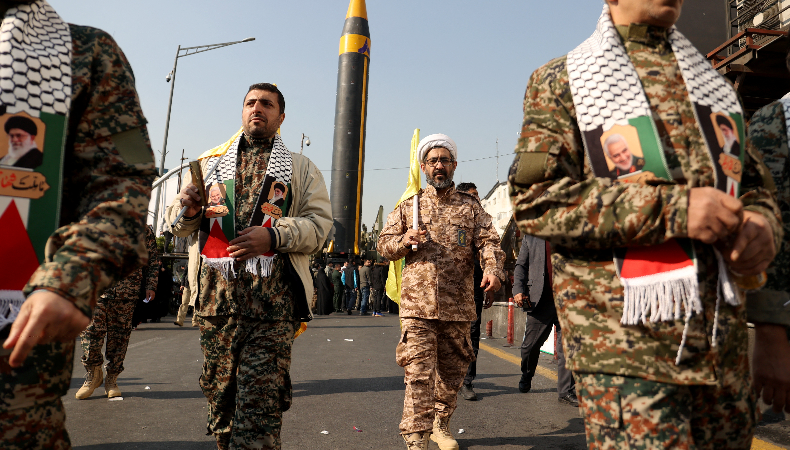
Tensions between Hezbollah and Israel are rising, bringing the Middle East closer to another major conflict. As the one-year anniversary of Hamas’s 7 October attacks approaches, Hezbollah has made a bold statement, declaring confidence in its ability to resist Israeli military actions. This militant group, based in Lebanon and supported by Iran, continues to stand by its long-held belief that Israel does not belong in the region.
Hezbollah’s Position and Ongoing Conflict
Hezbollah praised the 2023 Hamas attacks as “heroic” and significant for the Middle East. The group insists that Israel should be removed, regardless of how long it takes. It also blamed the United States and its allies for the violence that followed the Hamas attacks, accusing them of being responsible for the instability in Gaza, Lebanon, and the wider region.
Israel’s Response and Military Buildup
Israel, still dealing with the aftermath of the 7 October attacks, is strengthening its defenses. The attacks last year left deep scars, exposing weaknesses in Israel’s security and intelligence services. To protect itself, Israel has sent more troops to the border with Lebanon, aiming to prevent Hezbollah from expanding its influence in the north.
Israeli officials believe Hezbollah and Hamas are part of Iran’s broader strategy to surround Israel with hostile forces. With threats from both the north and south, Israel sees itself as encircled by Iranian-backed groups.
A Larger Conflict on the Horizon?
The situation is growing more dangerous, with both Israel and Hezbollah engaging in frequent cross-border clashes. Many fear a full-scale war could break out. Iran’s involvement adds to the complexity — recently, Iran launched a missile strike on Israel, escalating tensions even further. Although Israel has vowed to respond, it has yet to take action, possibly due to careful planning and discussions with its ally, the United States.
The U.S. Role and Regional Impact
The U.S. is watching the situation closely. While it supports Israel, the U.S. is cautious about further destabilizing the Middle East, especially with an election coming up. Any Israeli military strike on Iran could have serious consequences, including higher oil prices and a broader conflict that could draw in other countries.
Lebanon’s Fragile State
Hezbollah’s actions continue to affect Lebanon, which is already struggling politically and economically. The country finds itself caught in a proxy war between Israel and Iran, with its government too weak to control Hezbollah’s military activities.
Meanwhile, the constant threat of rocket attacks keeps northern Israel on edge. Residents near the border frequently flee their homes as violence between Hezbollah and Israel’s military intensifies.
Both Israel and Hezbollah seem prepared for more fighting, and the region is in a fragile state of calm. The coming weeks will likely determine whether this tension leads to a larger conflict. With neither side willing to back down, the situation remains uncertain, and the Middle East braces for what could be the next stage in this long-standing struggle.
